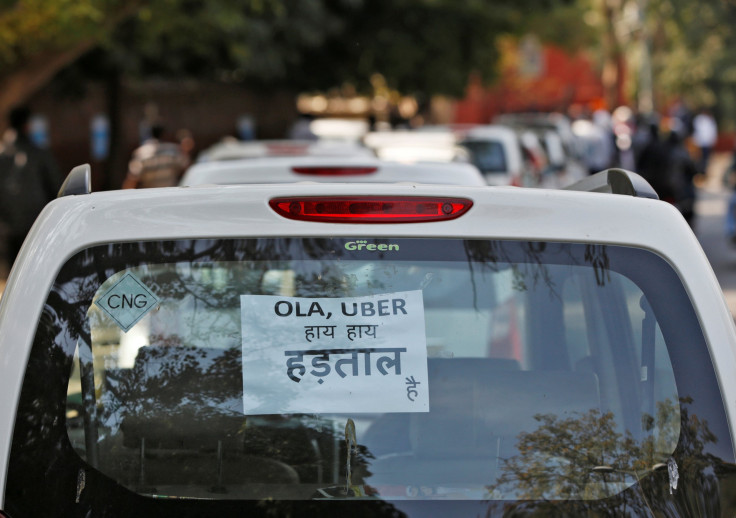Uber Strike In India: When Will Driver Protest Over Wages, Benefits End?

Commuters in India’s capital have struggled to get to work for the past week as thousands of drivers from Uber and its Indian counterpart, Ola, staged a strike, the first confrontation between 35 driver unions and ride-hailing services in the Delhi region, home to 25 million people.
Striking drivers have demanded shorter working hours, adequate insurance, more incentives and better benefits. Some of these drivers work 16 hours a day or became homeless, forced to sleep in their cars, because of inadequate wages, The Times of India reported. About 4,000 drivers are on strike.
“These companies are cheating us. They do not pay us on time and expect us to work like slaves," Jatindra Singh, a senior member of the New Delhi Taxi Union, told Reuters.
The strike has been contentious and sometimes violent — on Tuesday evening, protesters set a car belonging to an Uber driver ablaze.
In the interim, the New Delhi government has increased the frequency of bus service so residents can get to work. Other residents turned to rickshaws, rental companies and car-sharing services to get around. An agreement in the next few days seemed unlikely, media reports indicated. In fact, there’s been speculation the strike might spread to other cities like Mumbai.
Still, government officials said they would like to find a solution.
"I am going to hear all the sides and then we will set new rules soon," Delhi Transport Minister Satyendar Jain told Reuters.
In a statement, Uber said: "Serving riders, drivers and cities is core to our mission and we are working hard to ensure that drivers are able to get back behind the wheel and riders can get from A to B conveniently, reliably and safely."
© Copyright IBTimes 2024. All rights reserved.












